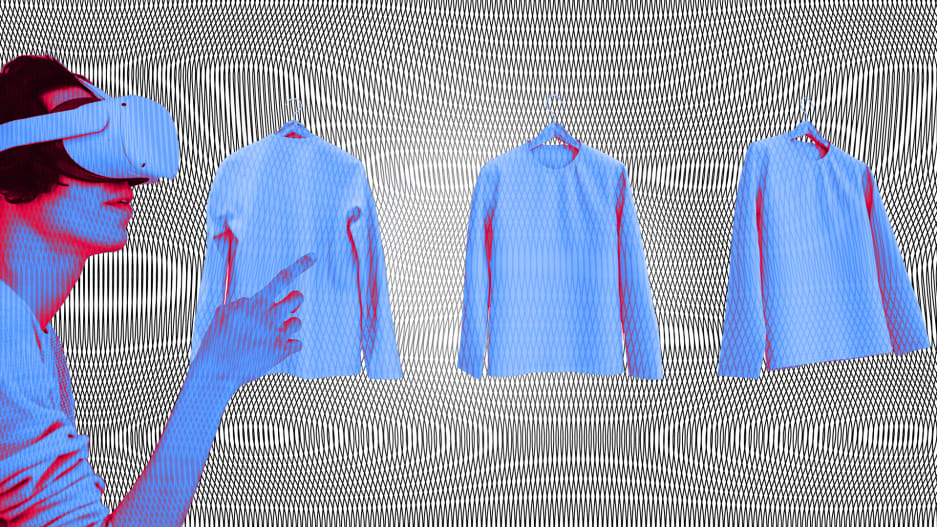Confession: Though I am a tech company CEO, even I was surprised when talk about the metaverse as The Next Big Thing blew up late last year.
Like everyone else, I was caught off guard in October when Facebook, in what will be remembered as the metaverse’s Big Bang, announced it was committed to building this new digital world and was renaming its holding company Meta. Yes, I had to work a little to better understand the concept. And I couldn’t help but wonder if the metaverse was just the latest creation of an industry that never met a buzzword it didn’t like to hype.
Since then, I’ve quickly come to understand that the metaverse not only has vast possibilities to reshape how we work, play, socialize, and shop, but that it’s specifically relevant to my life’s work: helping companies deliver great customer experiences.
I get it: The metaverse concept is fuzzy—Facebook hazily describes it as “a hybrid of today’s online social experiences, sometimes expanded into three dimensions or projected into the physical world”—and this squishiness has fired up the naysayers. For example, one long-time Silicon Valley entrepreneur told CNBC that the metaverse is an overhyped word to describe technologies that already exist and that “six months from now, it will be very rare to see the word metaverse used unironically.”
Ouch. And yet company after company has been planting flags in the metaverse lately. When Microsoft announced in January that it would acquire game developer Activision Blizzard for $68.7 billion—the largest deal in the tech giant’s history–”metaverse” was mentioned in the first paragraph of the press release. Walmart has filed several new trademarks indicating a nascent metaverse strategy. Apple’s stock jumped in late January after CEO Tim Cook said, “We see a lot of potential in this space and are investing accordingly.”
Nike is “just doing it” in the metaverse as well. The company filed several new trademark applications, revealing plans to make and sell virtual Nike-branded sneakers and apparel. It also acquired RTFKT, which “leverages the latest in game engines, NFTs, blockchain authentication, and augmented reality to create one of a kind virtual products and experiences.”
Not only all that, but the app to support Meta’s Oculus virtual reality headset was the No. 1 download on Apple’s App Store on Christmas. Clearly, something big is happening, and I’d suggest that every brand needs to be paying close attention. Why? Because if the metaverse does indeed live up to its promise, it will be a critical new vector of customer touchpoints. Think of it as the next frontier for customer experience.
Related: What the metaverse?
Both a business paradigm and a multibillion-dollar market, customer experience (CX) is all about delivering experiences that delight customers on an emotional level every time they interact with the brand. Its execution at scale is already an immense challenge in a digital world where consumers have unprecedented information, choices, and expectations.
SHOPPING IN THE METAVERSE
And now, the metaverse could add a new multidimensional layer that forces companies to reimagine the customer experience in a world of augmented reality (AR), virtual reality (VR), mixed reality, and physically accurate digital twins.
Picture a clothing retailer that plans to sell branded shirts and hats to be worn by avatars that customers have made of themselves for socializing in a virtual space. Or have those avatars try on apparel that the customers buy with digital currency to wear in the physical world. (Sound far-fetched? Well, that’s similar to what Nike appears to be exploring. Also, Ralph Lauren’s CEO lauded the metaverse as an opportunity to attract younger customers.)
The clothier may have made tremendous strides through the years providing an outstanding experience across all its digital and brick-and-mortar channels, but now they’ll need to replicate that in the metaverse.
The same kinds of questions the company already must ask itself about the quality of its CX in existing channels need to shift to the metaverse. What are we doing to find out what people really want in the metaverse? What will they find enchanting? What annoys or frustrates them? Are we simple to use? Enjoyable? Exciting? How can we best tie the metaverse experience to our overall omnichannel one?
The questions appearing on the horizon for such a company seem endless. Will they eventually want all customers to log into the metaverse as the foundation for the entire omnichannel experience? How—through Oculus, PlayStation, or another platform? What’s the right strategy regarding NFTs, which allow people to buy unique digital items using the blockchain?
It’s enough to make your head spin, but strip away the mystery surrounding the metaverse vision and it’s easy to see the potential for the metaverse to become yet another channel or business line that a company needs to knock out of the park.
Businesses would be wise to remember: Disrupt or be disrupted. I’m not saying the metaverse will be as historic a game-changer as, say, the mobile internet; I’m asserting it has too much potential to become that to be ignored.








































